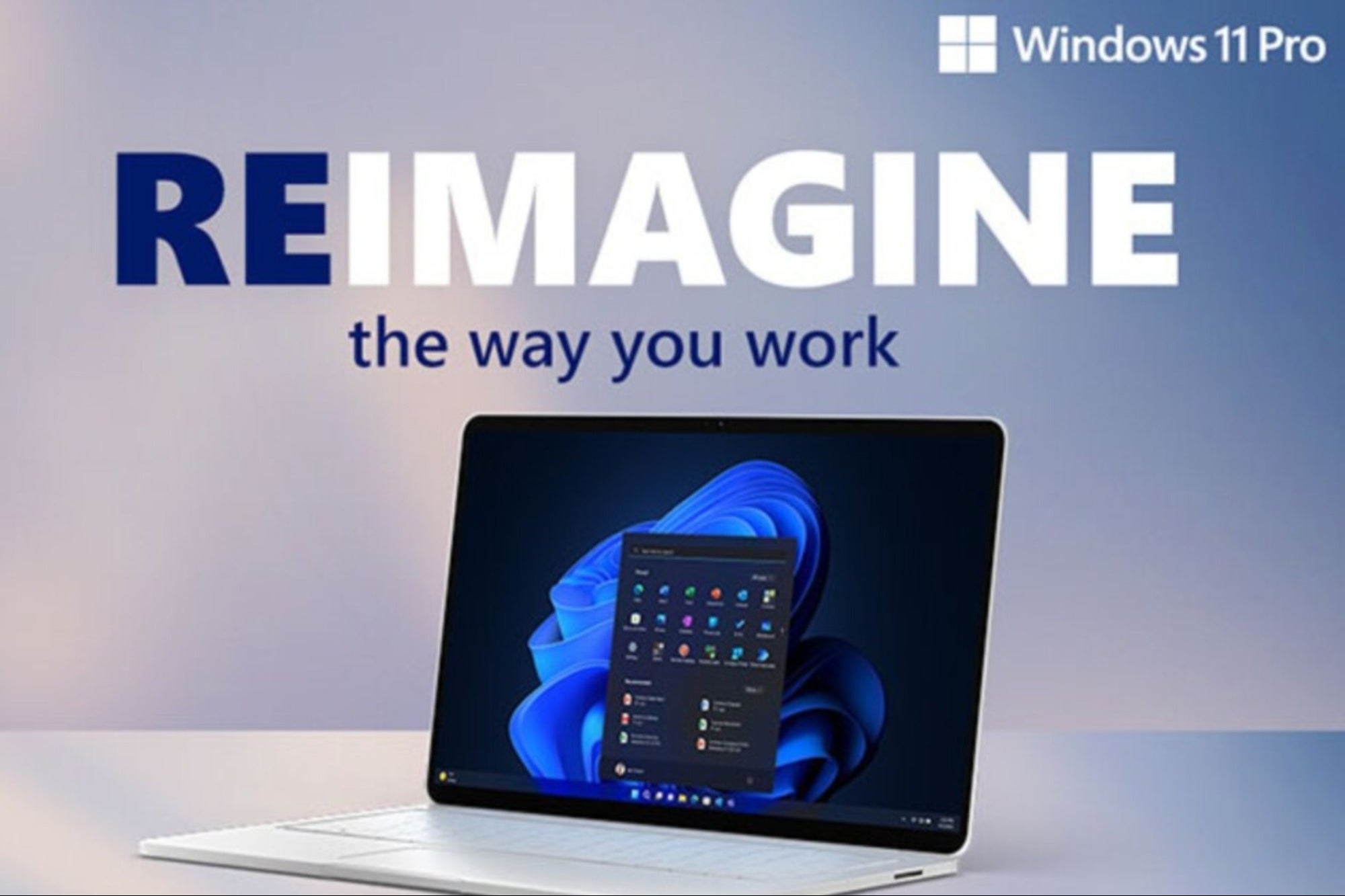Women & Minority BIZ Experiencess Inspiration and advice to help women and minorities face the challenges of business ownership.
Opinions expressed by BIZ Experiences contributors are their own.
Recent events ranging from Supreme Court decisions onaffirmative action programs to the outcome of the O.J. Simpsontrial have left issues of race, gender and fairness oneveryone's minds. In the words of one BIZ Experiences we spoke to,"You want to believe you're going to get a fair shakeevery time, but that's just not true." What is true,unfortunately, is that women and minority BIZ Experiencess sill facedistinct challenges in starting, running and growing theirbusinesses. But the news is not all bad-far from it. More women andminorities than ever before are turning to BIZ Experiencesship as away to take charge of their destinies-and more area succeeding atsmall-business ownership. To celebrate that success, as well as tooffer help in overcoming the hurdles, we at BIZ Experiencespresent this special report.
New Directions
We are a diverse country, and to not use that [diversity] iscrazy." So says Joan Parrott-Fonseca, director of the MinorityBusiness Development Agency (MBDA).
Appointed last spring, the former associate administrator of theGeneral Services Administration's Office of EnterpriseDevelopment has sought to make her mark-no easy task, given recentattacks on affirmative action and the MBDA itself.
"We public officials have to take some responsibility fornot providing the American people with a better explanation ofaffirmative action," says Parrott-Fonseca, the first woman tohead the MBDA. "People don't understand that assistance tominority- or women-owned businesses helps all of us. When you wastea segment of society, it's like throwing money out thewindow."
In addition to defending affirmative action, Parrott-Fonseca isworking to make changes at the MBDA. Although the agency'sfuture was uncertain at press time due to congressional attempts todismantle the Commerce Department, Parrott-Fonseca continues withplans to forge partnerships with the private sector.
"[The MBDA] funds 93 technical and management assistancecenters," she explains. "In the future, we'llprobably be partners in funding with [private] entities."
Parrott-Fonseca is also placing greater emphasis on growingbusinesses, as opposed to merely concentrating on start-ups.International trade and franchising are other priorities.
"For a minority or woman BIZ Experiences, [success] takes evenmore commitment," says Parrott-Fonseca. "[Those businessowners] are already working hard to overcome barriers, andwe'll be fighting along with them."
Fast Facts
Do women and minority BIZ Experiencess have clout where it counts?Here are the cold, hard facts.
WOMEN-Census statistics on women-owned businesses released inDecember 1995 marked the first time the Bureau has studied theentire population of women-owned firms. Some of itsfindings:
- Women owned 34.1 percent of all U.S. nonfarm businesses in1992.
- Women BIZ Experiencess raked in total receipts of $1.5 trillion in1992; the average woman-owned firm earned annual receipts of$246,000.
- From 1987 to 1992, 89 percent of new women-owned firms wereone-woman shops.
- The 11 percent of BIZ Experiencesial women who employed workersdominated in revenues if not in number-they accounted for 95percent of the sales generated by women-owned businesses in1992.
- Among women BIZ Experiencess with employees, receipts rose by 146percent between 1987 and 1992. Women BIZ Experiencess' explosivegrowth in revenues outperforms their growth in numbers, indicatingthat the average women-owned firm with employees is expandingrapidly and should continue to do so.
MINORITIES-Here's what a survey by the Joint Center forPolitical and Economic Studies, a Washington, DC, think tank,found:
- A quarter of minority firms reported at least a 25 percentincrease in annual sales in 1993. In the same year, only about 7percent of nonminority companies reported a similar salesincrease.
- More than half of minority-owned firms had annual sales of $1million or more in 1993, though nearly half of them started theirbusinesses with less than $25,000.
- The average minority-owned company was 11 years old, almost adecade younger than its nonminority counterparts.
- Nearly one-fourth of minority BIZ Experiencess said they recruitemployees from inner-city neighborhoods; only 10 percent ofnonminority companies did the same.
LATINOS-Primarily first-generation Latino companies withaverage annual revenues of $5.8 million were the focus of a recentMCI study conducted by The Gallup Organization. Theresults:
- They employ an average of two family members, and about 40percent believe Latinos are more likely to base business dealingson personal relationships.
- About 84 percent said they were equally comfortable doingbusiness with non-Latino companies.
- Fifty-three percent said Latino companies are morecustomer-service-oriented.
- One-third are involved in exporting and importing.
Certified Success
A new nonprofit organization designed to help womenentrepreneurs compete for government and corporate contractsexpects to have the first national certification program for womenup and running by March 1.
According to Kathleen Schwallie, president of Palos Verdes,California-based Women Business Owners Corp. (WBOC), thecertification program will help women more effectively market theircompanies.
WBOC's will be a private program modeled after one operatedby the National Minority Supplier Development Council. The program,created through a collaboration of government, private industry andwomen business advocates, will include specific standards womenmust meet. Schwallie expects it will eventually achieve nationalacceptance.
WBOC will also audit and certify women under the ISO 9000program (an internationally accepted set of standards for quality)."For many women and minorities, certification has been theonly way to compete," explains Schwallie, "but it is onlythe very first step." For information, call (310)530-7500.
Bank On It
If bankers like Ruth Salzman and Emma C. Chappell have theirway, minority and women BIZ Experiencess may begin to see banks in anew light.
"Women and minorities have a more difficult time gettingcapital. That's why we created this bank," explainsChappell, founder of United Bank of Philadelphia, a 3-year-oldcommunity commercial bank that has grown to $95 million in assetslargely due to her energy.
Ruth Salzman, executive vice president of Chemical CommunityDevelopment Inc. in New York City, says Chemical Bank isspecifically targeting women and minority small-business owners whohave a hard time obtaining financing.
"We offer products tailored to the needs of smallbusinesses and take into account some of the differences women andminorities may have," says Salzman, pointing to the CAN*DO(Chemical Access Network for Development Opportunities) Program asa key component of the bank's efforts. CAN*DO featurescharacter lending, a reduced owner's equity requirement,referrals from bankers and community organizations, technicalassistance, and credit enhancements.
Chappell sees a brighter future ahead as more banks take aninterest in the lucrative small-business market. And with theadvent of credit scoring, a uniform system for rating applicants,Salzman agrees that writing these loans is becoming more attractiveto banks.
Other programs to assist women and minority BIZ Experiencess inobtaining bank loans include the SBA's Women'sPrequalification Loan Program (see "SBA Report," August1994), the Minority Prequalification Loan Program (see thismonth's "SBA Update" on page 118), and the LowDocLoan Program (see "SBA Report," September 1994).
Pennies From Heaven
Perhaps the most viable financing sources for women and minorityentrepreneurs are angel networks-informal investment networks ofwealthy individuals and families who invest in start-upbusinesses.
"Angel networks are replacing the role venture capitalplayed 20 or 30 years ago," says Mary Bechmann, partner atBaccharis Capital, a venture capital firm in Menlo Park,California.
The growth of angel networks has made financing available to awider spectrum of companies. "Angels have a different set ofcriteria than venture capitalists," says Bechmann. "Youcan [grow at] a slower pace and be more conservative."
To find angels, start with a solid business plan. Next, hire anaccountant and a lawyer who are experienced in dealing withstart-up companies and know the financial community.
There are no shortcuts to networking-but there's also nosubstitute for it. "Once you know one insider," saysBechmann, "you can get to others." And that's how youget financed.
Nothing Ventured . . .
When it comes to venture capital, women and minorities face somespecial hurdles. "Venture capital firms are [made up of] veryclubby, 55-year-old white males with [Ivy League] MBAs," saysMary Bechmann at Baccharis Capital. Another hurdle: "To beworthy of venture capital, you're pretty much expected to have$50 million in revenues within five years."
But some venture capital firms are actively seeking women andminority-owned companies, asserts Thomas Sweeny, chairman of theConnecticut Venture Group, a private organization dedicated tonetworking among venture capitalists. "Lots of women- andminority-owned businesses have been supported by venturecapital," says Sweeny.
That doesn't mean it's easy. "Since venture capitalfirms have the money, they can afford to sit back and wait forpeople to find them," says Sweeny. "The burden is onbusiness owners to take the initiative."
Fair Share
Looking to get your piece of the lucrative procurement pie? Yourfirst-and possibly only-thought may be to hit up the federalgovernment. Although Uncle Sam is by far the biggest procurementcontractor, corporations, local governments, colleges and nonprofitorganizations are also valuable sources of procurement dollars.
Getting procurement dollars has not always been easy for womenand minorities, so many BIZ Experiencess have used affirmative actionprograms to help them. "Affirmative action has lifted morethan one-third of blacks in this country into the economic middleclass," contends Harriet Michel, president of the NationalMinority Supplier Development Council (NMSDC) in New York City.However, despite such successes, recent court challenges andcongressional activity may change the shape of affirmative actionprograms-if not eliminate them altogether.
- State Of Affairs
Current procurement programs range from making informal effortsto spend money with women- and minority-owned businesses to settingaside a percentage of contracts for them. The federal governmentbuys at least 20 percent of its goods and services from smallbusinesses, with 5 percent of that going to firms owned by sociallyand economically disadvantaged individuals-a category that includesethnic minorities and people with disabilities.
A recent overhaul of the procurement system mandated that 5percent of federal dollars spent on small companies must go towomen-owned firms. "This is the first time mandatory goalshave been set for women-owned businesses," says JudithRoussel, the Small Business Administration's (SBA) deputyassociate administrator for government contracting. A Women-OwnedBusiness Procurement Pilot Program is being tested in 11 federalagencies to increase dollars spent on women-owned businesses.
In addition to the government, cities, school boards, publicutilities, universities and corporations also seek women andminorities to supply products and services. In Springfield,Illinois, for instance, a minority business enterprise/femalebusiness enterprise policy specifies 12 percent of all city dollarsmust be spent with these businesses.
- Procurement Procedures
To sell to the federal government, start by registering with theSBA's Procurement Automated Source System (PASS). Also,actively market your business to specific agencies or primecontractors, and check out the Commerce Business Daily,which lists available contracts. Another source, the annual U.S.Government Purchasing and Sales Directory, lists more than4,000 items the government buys.
Certification as a women- or minority-owned firm is essential.Entrepreneurs can be certified through many different venues. Manycities or entities have their own certification programs. A goodgeneral place to start is with the SBA, which offers the 8(a)program for minorities as well as the PASS system. Minorities canalso be certified through the NMSDC.
From The Trenches
Are women and minorities pursuing the BIZ Experiencesial dreambecause they perceive diminished opportunities elsewhere or simplybecause they want to control their own destinies?
"For those people who are BIZ Experiencess in spirit, it'ssomething they've carried with them for a long time," saysGeorge Johnson, 47, co-owner with David Moore (left) of QualityCroutons Inc., a $6.5 million company in Chicago. "Perhaps itstarts as nothing but a small kernel inside them, but as they growolder and learn more, the desire eventually becomesall-consuming."
"Historically, there's been a much lower proportion ofthe black population in BIZ Experiencesship" relative to theirnumbers in the population, says Timothy Bates, professor of urbanand labor affairs at Wayne State University in Detroit."Today, [there is] tremendous growth in [black]self-employment." Apparently Johnson, who jumped off thecorporate fast track to start his firm, is part of a growingtrend.
From The Trenches
For Elizabeth Lisboa-Farrow, becoming an BIZ Experiences meanthaving to overcome a number of obstacles-not the least of whichwere the expectations of her Puerto Rican family.
"In the Hispanic culture, you're pushed by your familyto get married young and have children," explains theWashington, DC, BIZ Experiences. "I wasn't exactly workingout the way my family had envisioned. I remember turning 30 andgetting a call from my brother saying, 'Don't you think youshould be married?' I replied, 'I don't think so. WhatI'd really like to do is start my own business.' "
That was 18 years ago. Today, Lisboa-Farrow sits proudly at thehelm of Lisboa Associates Inc., a $2 million communications firm.And more and more women are choosing the same path: Nearly 8million women in the United States own businesses.
Despite the progress, "obstacles do exist,"Lisboa-Farrow admits. "I remember going to the Pentagon withtwo of my male staff members. The project director respondedimmediately to the guys-and thought I was a secretary! It's aconstant education process we as women and as minorities have towork at."
From The Trenches
It was a gamble," says Jill Duval of her decision tofinance Duval Publications with credit cards. "But ifthat's your only option, that's what you have todo."
More than 50 percent of women use personal resources, includingcredit cards, to start their businesses, says Betsy Myers, WhiteHouse director for women's initiatives and outreach.
Duval, whose Albuquerque, New Mexico, firm publishes magazinesand business directories, has since paid off many of her cards, butshe emphasizes this financing method is risky business: "Makesure you can pay it back so you don't ruin yourcredit."
Resources
National Minority Supplier Development Council Inc., 15W. 39th St., 9th Fl., New York, NY 10018, (212) 944-2430
Business and Professional Women's Foundation, 2012Massachusetts Ave. N.W., Washington, DC 20036, (202) 293-1200
U.S. Hispanic Chamber of Commerce, 1030 15th St. N.W.,#206, Washington, DC 20005,
(202) 842-1212
National Association for Female Executives, 30 IrvingPl., 5th Fl., New York, NY 10003,
(212) 477-2200
U.S. African American Chamber of Commerce, 117 Broadway,Oakland, CA 94607,
(510) 444-5741
National Association of Women's Business Advocates,100 W. Randolph, #3-400, Chicago, IL 60601, (312) 814-7176
The Office of Women's Business Ownership, Small BusinessAdministration (SBA) Central Office, 409 Third St. S.W.,Washington, DC 20416, (202) 205-6673
Minority Enterprise Development Program, SBA CentralOffice, 409 Third St. S.W., Washington, DC 20416, (202)205-6410










